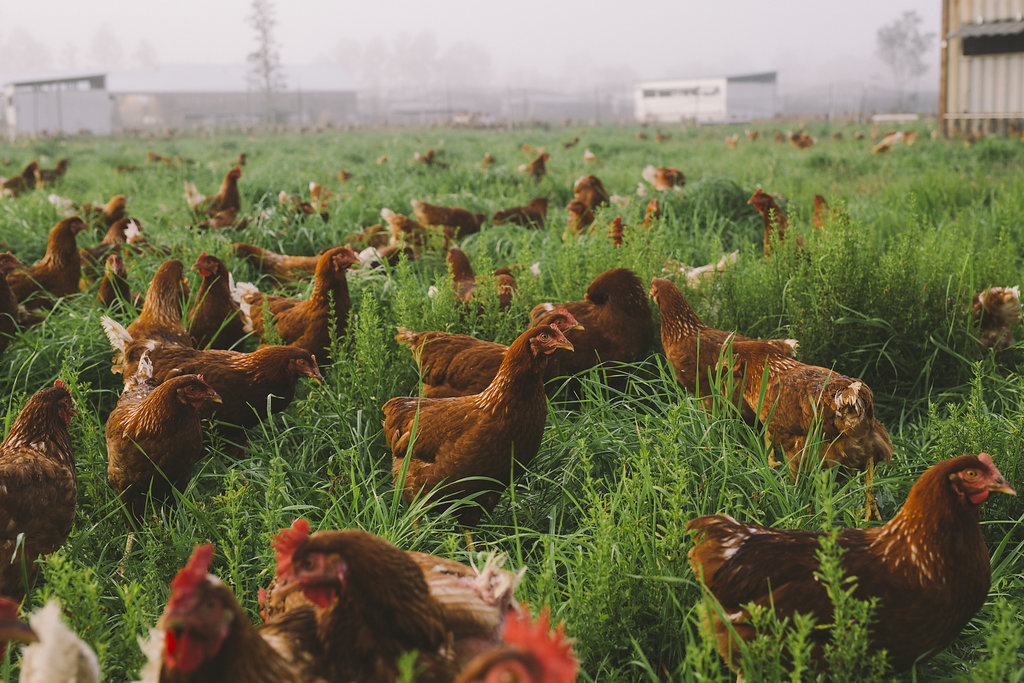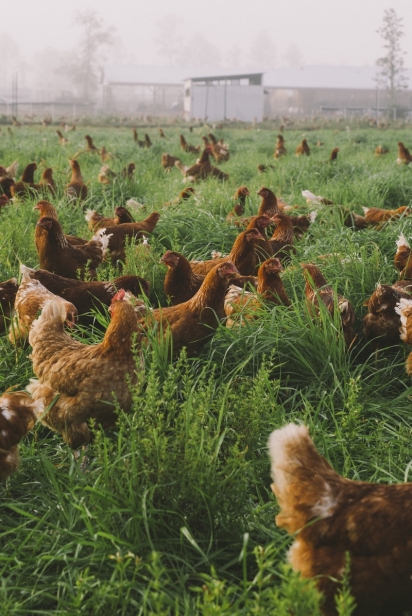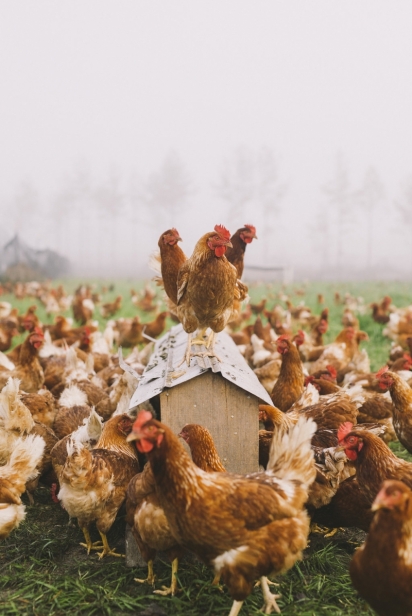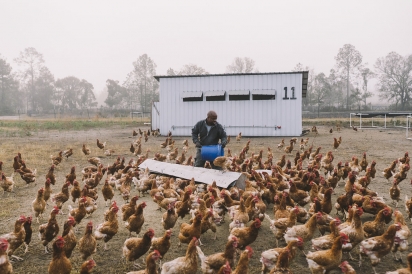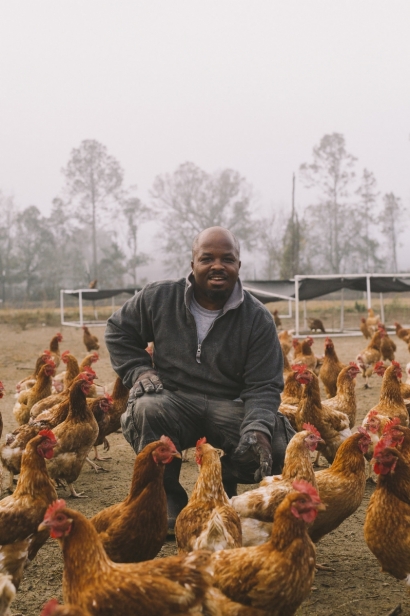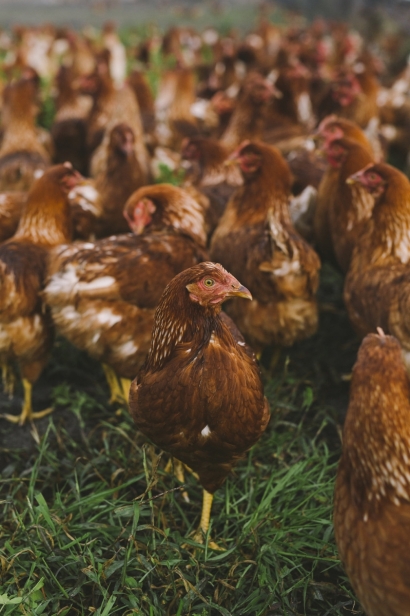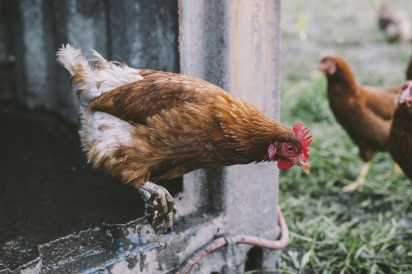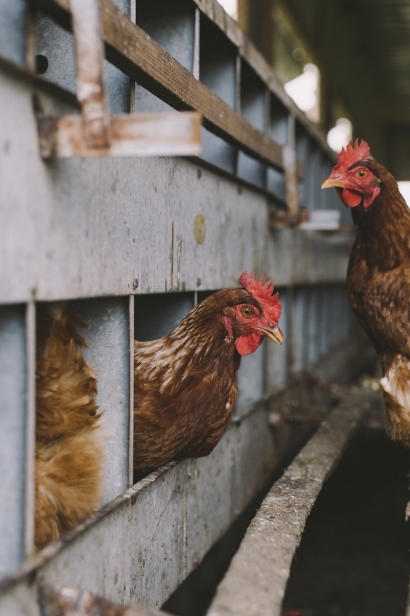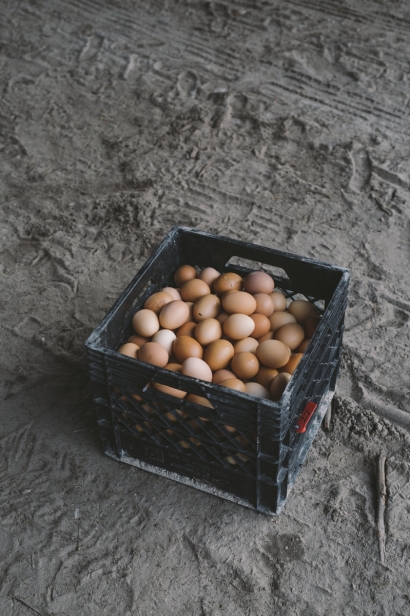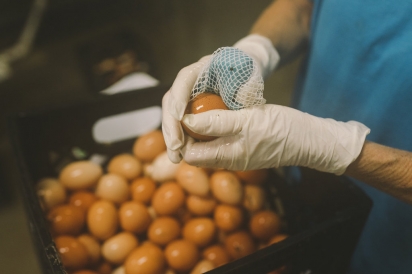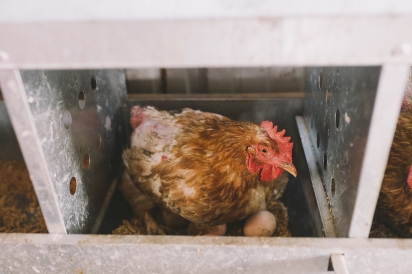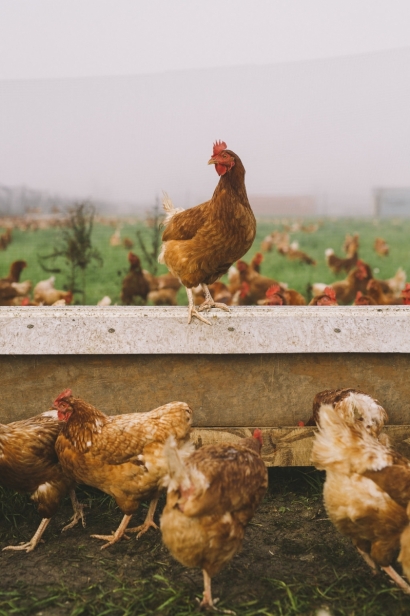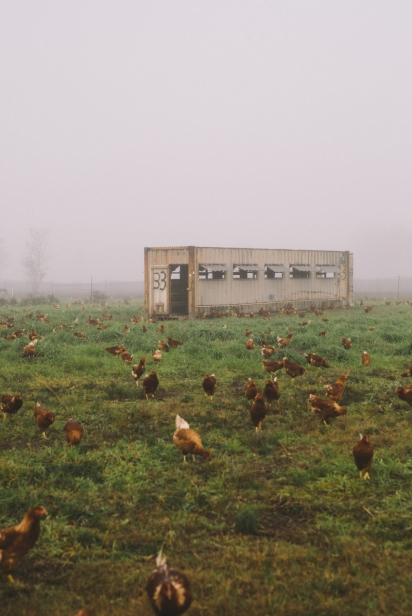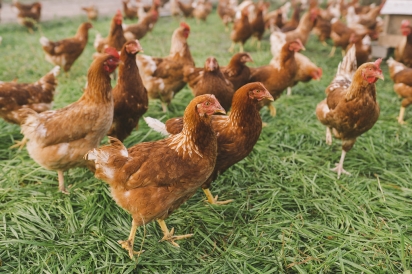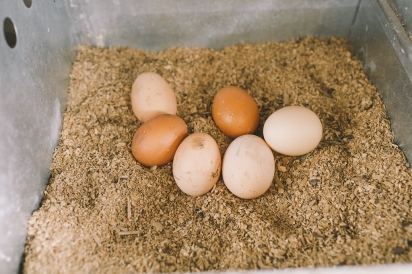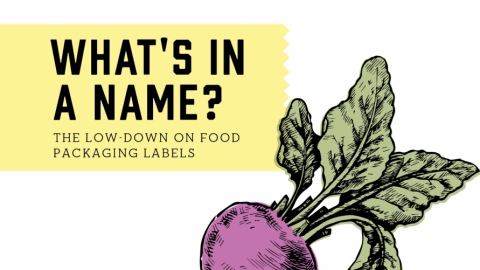The Great Northeast Florida Egg Hunt
When Alice meets Humpty Dumpty in "Through the Looking Glass," she finds him in a highly precarious position, perched on the wall from which he’s destined to take his great fall, but utterly convinced of his perpetual safety in the hands of all the king’s horses and men. It’s a fair metaphor for the situation of the egg farming industry on the First Coast in 2018, where years of success and productivity have led to a glut in the market that threatens to undermine the very farms that put eggs in our cartons, batters and brunch menus.
According to the American Egg Board, Americans eat an average of 275 eggs a year, laid by 315 million hens. This demand has led farmers to innovate bigger, more efficient methods of production. Large-scale farms can produce millions of eggs of every grade and size and distribute them across the country and beyond. However, their success has flooded the market, resulting in plummeting egg prices in various regions.
This has established a high bar of entry and a low margin for error for smaller farmers, who provide the locally sourced, pasture-raised eggs favored by a growing number of consumers. Only a few such farms operate on the First Coast, so consumers can find themselves in a seemingly paradoxical situation where, depending on what they’re looking for, eggs are either readily and inexpensively available, or hard to come by.
Compounding the problem is the fairly inscrutable labeling the FDA and other entities use to describe different methods of raising hens. Many consumers struggle to differentiate between “cage-free,” “pasture raised”and other similar terms, and so have a limited idea of what they’re buying. “They’re marketing terms,”said Jack Hellein, Overseer of Product Development at Bethesda Farm in Raiford, the first non-exempt USDA Organic egg-producing farm in Florida. “They’re designed to cause confusion. And it works.”
Jacques Klempf, former owner of Dixie Egg Company, the region’s largest egg farm, also finds the labels problematic. “Cage-free is a misconception,” he said. While customers picture chickens foraging in the fresh air, in reality most cage-free facilities are factory settings not much different than the caged system. Cage-free hens actually have cages, though they can go out into a common area. This has problems of its own, as the clustered hens often attack each other, spread diseases and raid each other’s food.
According to Klempf, industry studies find cage-free hens no better off than their caged sisters. But consumers like the label, and major buyers are responding. This is one of the reasons Klempf sold Dixie Egg to focus on his restaurant business. “As an egg farmer, I can’t make decisions based on consumer perception. That changes. What doesn’t change is math and science.”
Pasture-raised is the industry term for eggs laid by chickens who really are outdoors, though the USDA doesn’t regulate it. Many small farms still employ this traditional method, but it is labor intensive and costly. Feed is expensive, and more so if it’s organic. Distribution can be daunting. There’s weather to contend with and predators to fend off. Some farmers use mobile coops, which can be moved to give the hens fresh pasture, requiring yet more work. Accordingly, prices are substantially higher than factory-farmed eggs.
But pasture supporters tout the benefits. They appreciate that the chickens are living a more natural lifestyle, with space to roost and forage. The hens supplement their feed with plenty of grubs and grasses, which affects their eggs, and selling locally means small farms can ensure freshness.
Meredith Corey-Disch, owner of Community Loaves bakery in Jacksonville’s Murray Hill neighborhood, buys her eggs from Bethesda, and believes they’re well worth the cost. “With all decisions made to go the more ethical and environmentally responsible route we add expense,” she said. But she appreciates “knowing our eggs are coming from animals that are not tortured, that they have more nutrition, that we are getting them from a nearby farm rather than being shipped in. Baking with quality eggs, even with the cost and variation, is rewarding.”
Allison D’Aurizio, co-owner of 1748 Bakehouse in Jacksonville, agreed. She sources her businesses’ eggs from local farms at the Riverside Arts Market’s Farmers Row. According to D’Aurizio, “the yolks don’t lie. There’s nothing like a deep golden yolk, the richness and silky finish that comes through with a pastured hen.”
There are complicating factors. A chicken’s breed, diet, environment and other conditions result in eggs with a variety of qualities. Size, shell thickness and consistency can affect baking, and a local farmer’s small selection may limit what can be made with their eggs. Corey-Disch works around some limitations with precise measuring: “We write all of our recipes in grams, including eggs, to make the size variation easier to deal with.”
But D’Aurizio’s needs are particular. Thin-shelled eggs are excellent for cakes and cookies, while thicker shells and rich yolks are necessary for curd. “If I’m separating yolks for lemon curd, certain eggs don’t separate well — I almost always break that yolk,” she said. At her current scale, she’s had little trouble getting what she needs from small farmers, but she anticipates sourcing issues once her business grows into her new storefront in Springfield. “We haven’t figured out what we’ll do.”
Hellein sees growth potential for local egg farms as they find their niche with customers dedicated to local sourcing. He’s had success with a simple 30-second pitch describing his farm and its stringent methods. “One of our guiding principles is ‘the chicken comes first, then the egg," he said. “It’s an easy sell because our standards are higher.”
Some local farmers are following Bethesda’s lead. While only a few egg farms exist, other small farms are selling eggs in small quantities to establish trusted relationships with their customers, even if they don’t turn a profit. Katie Provow, market manager of St. Augustine Amphitheatre Farmers' Market and a former egg farmer, said “eggs are a loss leader — they’re the product everyone wants, and farmers are eager to get them from their farms into consumers’ kitchens.” Though they don’t make money, farmers sell eggs with the hope that consumers will come back for other products like vegetables, poultry and CSA shares.
As for a solution to the egg industry’s problems, Hellein and Klempf are in agreement: educating consumers is paramount. “If I had one wish,” Klempf said, “I’d wish they would teach animal science in every school, from elementary school to junior high, so they have some idea how food gets to their plate.” As a non-profit organization, Bethesda provided a $40,000 grant to underwrite “microfarming” initiatives at four Clay County elementary schools last year to teach farming skills to children. Perhaps it won’t take all the king’s men to get the egg industry back to its proper place again.


